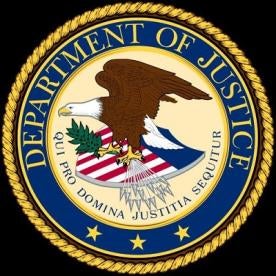Joseph “Jody” Hunt, Assistant Attorney General for the Civil Division, provided a glimpse of current civil enforcement priorities of the Department of Justice (DOJ). Speaking at the Federal Bar Association’s annual Qui Tam Conference on February 27, 2020, Hunt pledged that DOJ would pursue qui tam cases involving nursing homes, Medicare Advantage plans, and electronic health records. In this article, we provide a concise summary of these remarks, and discuss the implications for companies operating in this space.
Nursing Homes
Hunt first highlighted DOJ efforts to police fraudulent billing and poor care by nursing homes. In recent years, the Civil Division has resolved several significant qui tam cases involving nursing homes, including an $18 million settlement in February of 2019 with Vanguard Healthcare LLC, a $10 million settlement in October of 2018 with Southern SNF Management, and a $53 million settlement with Genesis Healthcare Inc. Hunt emphasized that advances in elder care and medical technology made such conduct inexcusable, and vowed to pursue wrongdoers that provide poor care, or submit fraudulent invoices, regardless of whether the matter was likely to result in a significant settlement.
Notably, on February 28, 2020—one day after Hunt’s speech—the DOJ announced a $9.5 million settlement with Diversicare Health Services, Inc. over claims for unnecessary rehabilitation therapy. The DOJ press release emphasized that nursing homes that prioritize profit over patient care and demonstrated clinical need will face heavy scrutiny from law enforcement. In addition to the monetary penalty, the settlement required Diversicare to enter into a five-year Corporate Integrity Agreement with the Department of Health and Human Services.
Elder Justice Initiative
These efforts parallel the Department’s Elder Justice Initiative, which Hunt also discussed. The Elder Justice Initiative is a DOJ task force focused on prosecuting elder abuse, financial fraud, scams, neglect, and abandonment. In addition to bringing cases under the False Claims Act, the Elder Justice Initiative provides resources to state law enforcement, draft pleadings for state and local prosecutors, and briefings on the federal laws governing elder abuse.
Medicare Advantage
Regarding Medicare Advantage plans, Hunt commented that his office was pursuing several qui tam investigations in the space, with a particular focus on accurate patient coding. With the significantly increased participation of Medicare beneficiaries in these plans, scrutiny of Medicare Advantage carriers comes as no surprise. As of 2019, approximately one-third of all Medicare beneficiaries (amounting to approximately 22 million people) were enrolled in Medicare Advantage plans, and the Congressional Budget Office projects that this percentage will rise to approximately 47 percent by 2029.
Electronic Health Records
Hunt then turned to Electronic Health Records (EHR) and referenced the January, 2020 DOJ settlement with Practice Fusion, where Practice Fusion admitted to receiving kickbacks from opioid manufacturers. More specifically, according to DOJ’s press release, Practice Fusion admitted to allowing pharmaceutical manufacturers play a role in designing the alerts that were implemented into electronic medical record programs, including the alerts that indicated when certain medications should be prescribed. Hunt instructed attendees to anticipate ongoing scrutiny and similar settlements in the near future.
Granston Memo
Finally, Hunt discussed the importance of voluntary cooperation, and the effect of the so-called Granston Memo. Leaked to the media in January of 2018, the memo instructed DOJ attorneys to avoid intervention in frivolous qui tam cases and to ensure that they consider government policy when deciding wither to intervene. Hunt emphasized that the memo would not stop the DOJ from aggressively pursuing qui tam cases, even if the case required significant resources. As far as cooperation, Hunt indicated that corporations making extraordinary efforts to cooperate in a False Claims Act investigation would be rewarded with reduced settlement amounts, including settlements that may only slightly exceed actual damages, rather than the treble damages authorized by the False Claims Act.
Implications
Because DOJ cannot predict what complaints whistleblowers will bring, Hunt’s “initiatives” may foreshadow the queue of qui tams that have been filed rather than indicate new efforts by the Civil Division. Whistleblower cases are under review now and will be pursued aggressively. The vast majority of False Claims Act judgments and settlements result from whistleblower actions: in 2019, of the approximately $3 billion recovered, $2.1 billion resulted from whistleblower suits; the prior year, of the approximately $2.8 billion recovered, $2.1 billion arose from lawsuits filed under the qui tam provisions of the False Claims Act.
For health care companies, as well as for any companies subject to the False Claims Act, the continuing increase of whistleblower suits highlights the importance of having
-
systems in place to detect and prevent potential fraudulent contact, and
-
a regimented (and documented) approach to responding to employee complaints.
To the latter point, employees should be encouraged – and trained – to raise concerns and complaints internally, so as to avoid the need of going directly to the government. A reasonable, thorough response to potentially valid complaints, including investigation and potential remediation, can go a long way in convincing DOJ not to intervene, or in defending the action down the road.





 i
i


